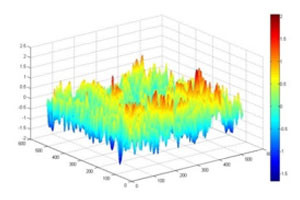Karen A. Flack

Karen A. Flack is a Professor and Chair of the Mechanical Engineering Department at the United States Naval Academy in Annapolis, Maryland, USA. Her research focuses on turbulent boundary layer physics with a concentration on rough wall boundary layers and frictional drag prediction.
The relationship between surface topography and frictional drag
Karen A. Flack, United States Naval Academy
Understanding the relationship between a surface’s topography and its hydraulic resistance is an important, yet illusive, goal in fluids engineering. Particularly poorly understood are the flow conditions at which a given surface will begin to show the effects of roughness in the form of increased wall shear stress above that of the hydraulically smooth wall and the behavior of frictional drag in the transitionally rough regime. The goal of this research is to develop engineering correlations for the prediction of frictional drag for all roughness regimes. The correlations should be based on information that can be obtained solely from the surface topography, thus excluding any information that requires hydrodynamic testing. Previous results have shown that the root-mean-square roughness height (krms) and the skewness (Sk) of the probability density function are the roughness scales that best predict frictional drag in the fully rough regime. These and other statistics for a wide range of surfaces are investigated in the transitionally rough regime. Results will be presented for systematically altered surface roughness with a range of scales that follow a power law spectrum.

Mathematically generated rough surface with a range of scales
